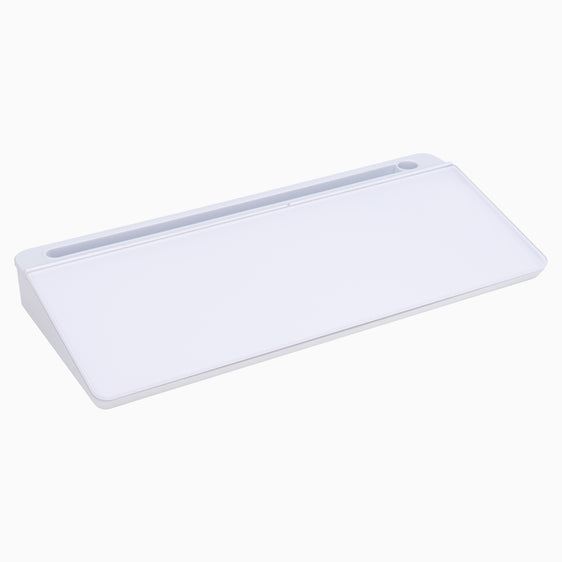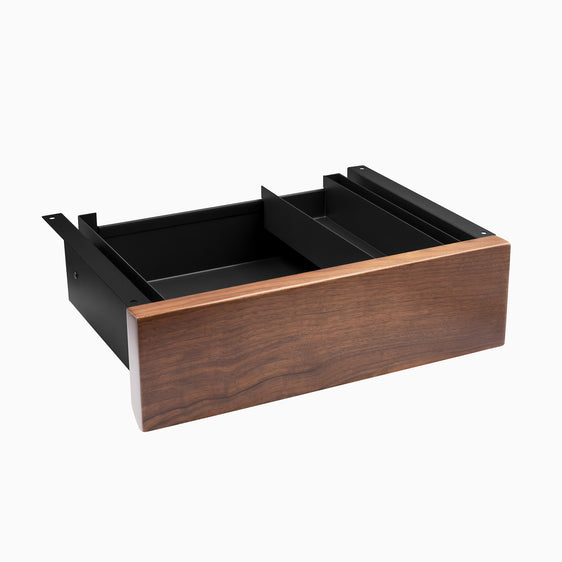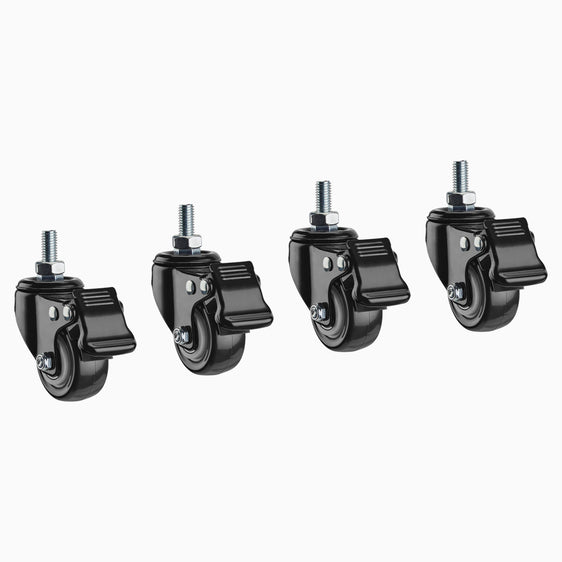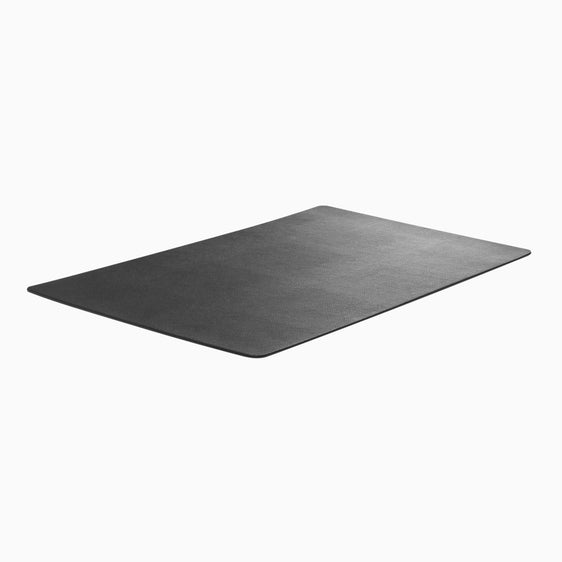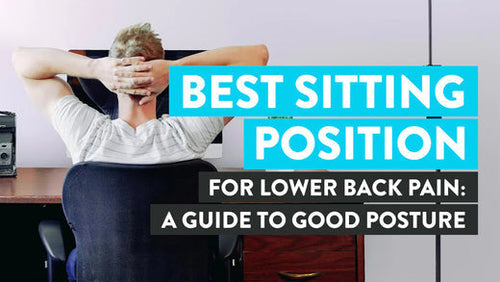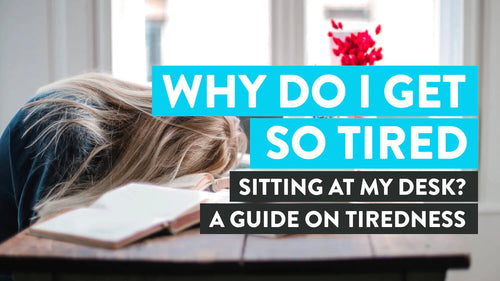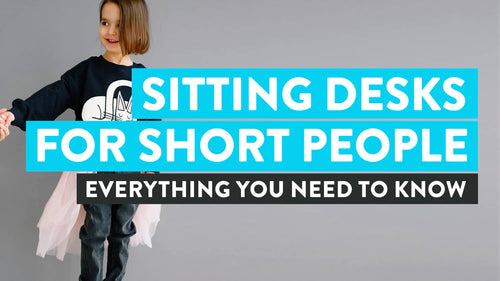
News
How to Choose Kids Desks: A Complete Buying Guide
Hayden AdamsIf you're in the market for a child's desk, no doubt you want to provide your kid with the the best desk set up possible to aid their education. But deciding which desk is best can be tricky! That's why we've put together this buying guide, to help you navigate the different options and help find the key piece, around which you can build your kid a fun and functional workspace.
We'll cover the types of desks you have to choose from, the features you should look out for when choosing a kids desk, as well as covering some of the key questions you should ask yourself when selecting a new kid's desk.
Should You Put A Study Desk In Your Child's Bedroom?
Whether or not you should put a study desk in your child's bedroom is up to you, and depends on the space available. If it's already a well furnished room, you simply may not have space. Or, if you're lucky enough to have a spare room, you might find it's more productive to place the desk in there. Remember that a desk also provides extra storage space, so you can also use it to free up room elsewhere!
If you are going to place the desk in your kids room, be sure to pick a spot which minimises distractions in their eye-line. You also want to find a spot that has ample natural light if possible - but ideally, not somewhere with a view out of the window (as this can be distracting too).
If you have enough of your own space that it's possible, a dedicated study room would be ideal. This way you can minimise distractions and provide a personalised space that is solely for work. However, not many of us have such a luxury - which is why, for those with less space available, often the child's bedroom is the best spot. The place with the least distractions, outside noise and inteference, and where your child feels most comfortable is the ideal.
What Type Of Kids Desk Is Best?
There are a variety of different types and styles of desks available, so selecting which is going to be best for your kid is not going to be easy. We've listed the main types of child's desk, their strength's, and sometimes weaknesses, to help you choose.
Ergonomic Kids Desks
An ergonomic desk will be designed to suit your child's body shape, and will be built in such a way that it helps your child work in a natural position, which doesn't place undue strain on their neck or back. In many instances they will be adjustable, so you can alter the height at which your child interacts with the desk. Developing good postural habits is important, and ensuring your child has an ergonomic desk (and chair) will help you to teach them to sit correctly at an early age.
Wooden Desks
The classic children's desk design, the solid wood desk has been around for as long as we've had schools! Wood is a great material for desks, being strong and generally hard wearing. However, for the rough and tumble which a kid's desk is likely to experience, wood does have some draw backs.
Some woods mark easily, and are susceptible to damage from spillages and knocks - not to mention colouring pencils and pens. For this reason some wooden kids desks have laminated desktops, which are easy to wipe clean and protect the desk itself from damage.
Kids Desk and Chair Set
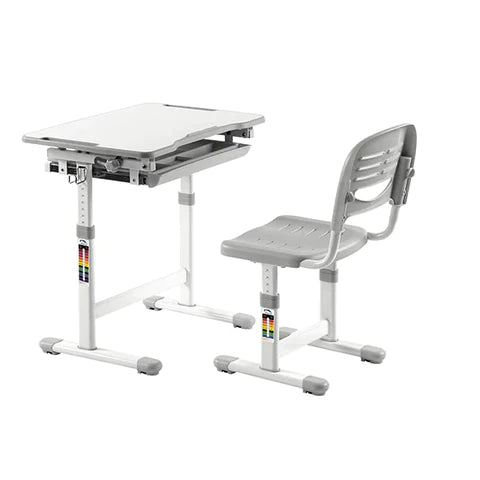
Very often you'll find kids desks and chairs sold together - which makes sense, as the desk is not much good without a chair. And just like adults, it's important that your child has a comfortable, supportive chair for when they use their desk. Buying as a set has the advantage that the desk chair will be suited to the desk, both in style and size - so you should be able to set chair seat height at the correct height relative to the desk with ease.
Height Adjustable Desks For Kids
Adjustable desks come in many shapes and sizes, but with children's desks, you tend to see two main adjustable factors: height, and desktop tilt - and sometimes both in one desk. Height adjustments are important for two, very important reasons. First, setting the desk at the right height for your child is crucial to them maintaining good posture.
Your child should be able to sit with back straight, shoulders back, and easily access the desk, with the arms flat by their side bent at right angles, with out stooping or reaching. Height adjustable desks (and chairs) allow you to find this sweet spot easily.
Second, children are growing all the time - and a adjustable student desk allows you to compensate for this too. Not only can you alter to find the new optimum position: often the range of adjustments will mean you can keep the same desk for years, 'growing' as your child does. See our previous post for a more in-depth look at the benefits of study desks for kids.
Tiltable Desktop
As mentioned above, a tilting desktop can also help with your child's posture. It could also encourage your child's creative side, providing their own drafting table to let their imaginations run wild (or complete their art homework).
Kids Desk With Hutch
Another classic, the hutch is a great idea for a kids desk setup- not just a cute addition, it provides ample storage space too. The shelves in the hutch are ideal for storing pens, pencils, papers and everything else, and help keep the space organised and neat.
It does however eat away at the available desktop space, so their is a small compromise to be made. Many modern desks also have ample draws and built in storage, whilst keeping the maximum desktop study space free.
Where's The Best Place For A Children's Desk?

There are many factors to consider when selecting a spot for your kids study area. Ideally, you want somewhere with good natural light, and minimal distractions. It's up to you, and your kid of course, as to whether you set up their study area in a bedroom or a shared room. This to an extent depends on the age of your child, and how much supervision or encouragement they require.
Some kids study best alone, with minimal distractions, so you might consider using the bedroom to give them their own space as they work. Depending on their age group though, they may need more supervision to keep them on track, in which case an area where you can keep an eye on them is better.
The right desk to an extent will be the one which best fits the area you deem most appropriate for your child. Sometimes, a small desk is better - if the ideal plot doesn't have enough space for anything bigger. It should go without saying, but do be sure to check the desk you are looking at actually desk fits in the space you have selected!
What Should I Look For In A Kids Desk?
There are are many important factors you should look for when selecting a kids desk, and what works for one child may not for another. We've listed the factors for you to consider below, to help you make your choice!
Kid Friendly Design
As a general rule, children will have accidents: so you need a desk which is designed sympathetically, and with your kids safety in mind. Curved edges are a plus, and check to see there are no moving parts in which a child could trap a hand or finger.
Turn handle mechanisms are ideal, as they lift the desk slowly and are hard to activate accidentally. Beyond this, look for features like cup holders - things that as adults we don't need, but for kids become super important!
Height Adjustable
For all the reasons stated above, we would always recommend you select a height adjustable desk. Setting the desk and chair to the optimum height is the best way to foster good posture, and a comfortable position will aid your child's concentration.
But just as important, the desk will be able to grow with your child, ensuring you can always find the best position - and saving your hard earned dollars on replacement desks. Plan ahead and buy a desk that can serve you for the next few years.

Ergonomic Features
An ergonomic desk will allow you child to get as close to the desk as possible and keep the best position, helping develop good habits that will serve them well in the future. But many desks have additional ergonomic features you can look out for.
Tiltable desktops prevent your child from having to stoop over to write, draw or colour, protecting them from bad postural habits which could lead to problems as they grow.
Tough and Durable
A kids desk is likely to take a bit more punishment than your average desk - so sturdy construction is a must. Wooden desks can tend to get scuffed and marked, although a harder wood will often be able to take the blows - but can prove expensive and heavy.
Many desks, especially for younger students, are build from durable plastic combined with metals like steel, making them ultra tough, but also lightweight and more affordable.
Easy to Clean
Despite your best intentions, at some point your child is going to spill something on the desk. We know it, you know it, so choose a material that is easy to clean, and doesn't stain easily.
Many desks have laminated surfaces for this reason, although it is often more cost effective to go for a plastic desktop - easy to clean, with soft edges and often very tough, don't underestimate the plastic kids desk.
Storage Space
Keeping your kids stuff organised can be a nightmare, and that's assuming you have enough space to store it in the first place! A desk with built in drawers can solve both of these problems, providing a home for your kids learning aids, neatly organised in a place your child has easy access to while they study.
{{ spec_ultra_slim_drawer }}
Many kids desks feature drawers designed to store pens, pencils, pads and exercise books, so be sure to check what's actually inside the drawers before you buy!
Keyboard Tray
A keyboard tray has a few key benefits for your kids desk. Number one, it keeps the keyboard at the perfect height to protect your child's posture while they work at their computer. Two, it protects the keyboard while it's not in use, as it can be stashed away under the desk. And three, it clears space on the desktop, giving your child more space to spread out.
{{ spec_keyboard_tray }}Multi-Purpose
As much as we want to create a dedicated study space for our kids, children are children, and will no doubt re-imagine the space on their own terms while it's not being used for study. It's worth bearing this in mind, and trying to select something that is adaptable and can be used for fun as well as learning.
Tilting desktops can be great for this, as they provide a space for your child to draw and develop their creative side in their downtime.
What Is The Best Desk for Study?
The perfect study desk for your kid will depend on many factors, the most important of which is them. We hope we've shown you that by following the guidance above you should be able to find a desk that will suit them for years to come.
In many cases, an adjustable desk is the best and most cost effective option, allowing room for your child to grow. Remember to check the ergonomic credentials, check for storage options, and go for a desk that's sturdy, lightweight and easy to adjust.
Design Tips For Your Kid's Study Space
Get a Good Chair
Often over looked, a comfortable ergonomic chair will not only protect your kids posture, but help them concentrate and hopefully minimise any fiddling or discomfort.
Natural Light
Wherever you place the desk, make sure it is bathed in natural light. Natural light not only illuminates your kid's study area - it's good for the body and soul, and all that extra vitamin D will help them maintain a positive attitude towards their work (hopefully!).
That said, sometimes your kid may need to work after dark - so investing in a good table lamp is a good idea.
Minimise Distractions

One of the regular issues parents face is getting their children (especially younger children) to engage with their homework. The modern home has so many distractions that it's no wonder - and coupled with shrinking attention spans, getting your kids to settle down and complete their homework can be a real challenge.
The best study spaces aim to minimise distractions, and help your kid focus their attention on the book or computer screen. Placing the desk against a wall will ensure their is nothing beyond the desk in your childs eye line. If you have limited space, a wall mounted desk will have the same effect.
Although your child may well need some devices to work, try and pick a spot or room where they don't have access to any others, and keep any games/toys/consoles out of the way so they don't remind your kid what they could be doing if they weren't working!
Make A (Not Too) Comfortable Space
You want your child to be comfortable and supported in their work - but it is important to remember this is a study zone, first and foremost. So although of course it is ok to make it fun, know where to draw the line - if your kid begins to associate the study area with play-time, for example, you will have a real challenge turning that juggernaut around.
So you can add a bean bag so they have a comfortable place to read, and of course a comfortable chair is an absolute must for when they working at the desk. Just keep toys and devices out of reach, and let your kid know that this is a space for working.
Maximise The Space Available
There are a million different ways of maximising the space available to you. Choosing a desk which has ample storage is a great way of keeping all your kids study materials in one place, and has the added advantage of keeping those materials off of the kitchen diner.
Consider A Reading Nook
You may also want to provide a quiet space for reading, either alongside the homework station, or elsewhere in the house. Any quiet corner in the house can act as a nook - with perhaps a bean bag and a lamp to create the effect.
Think About Your Interior Design
There's no reason you need to sacrifice your house style to incorporate a study room. Choose furniture which complements the design scheme of the rest of the house - you might be surprised how many styles are available for kids furniture. Alternatively, you can co opt unused bookshelves etc from around the house and use these to help tie everything together.
Conclusion
If you keep these principles in mind, we're sure you'll make the right choice. If you're looking for ideas or further inspiration, check out our kids desks and chairs to see if they tick your boxes!



